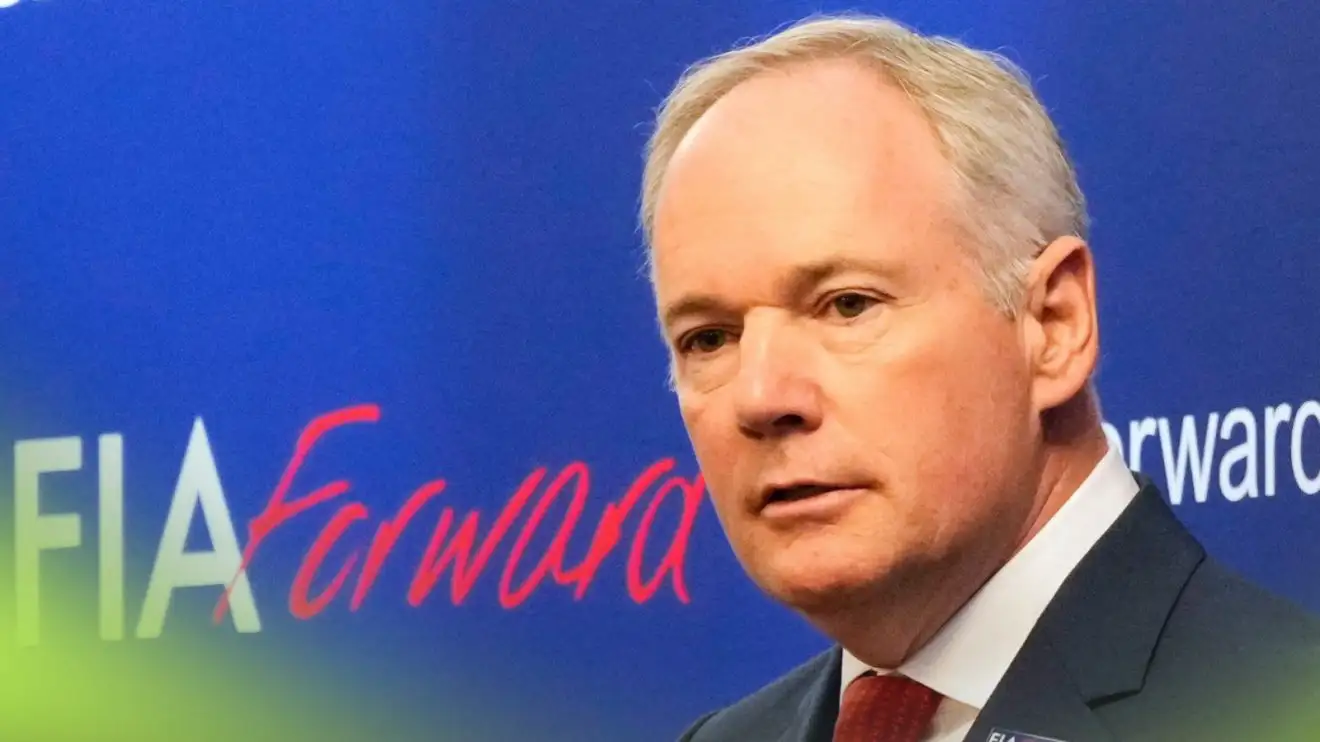FIA calls out ‘misleading and defamatory’ claims from presidential candidate

The FIA has responded to a letter sent by Tim Mayer, suggesting claims within it were defamatory.
The FIA has hit back following a letter from presidential candidate Tim Mayer, claiming it made defamatory statements about the governing body.
Last week, a letter from Mayer was sent to FIA member clubs raising concerns over governance aspects of the motorsport governing body.
FIA brands Tim Mayer claims ‘unfounded, misleading, and defamatory’
Over the British GP weekend, Mayer announced himself as a candidate for the FIA presidential election, one of three challengers to Mohammed Ben Sulayem.
However, his campaign ran out of steam when it became apparent that he was unable to submit a valid nomination to become president.
When nominating for the presidency, candidates must submit a List, effectively a cabinet of individuals supporting them with representation from each of the FIA’s regions.
Those individuals must be nominated for the FIA World Motorsport Council, which this year saw only one name put forward for South America, Fabiana Ecclestone.
With Ecclestone having announced her support for Mohammed Ben Sulayem, it left all the other candidates unable to complete a valid list, effectively ending their campaigns.
However, Mayer has refused to cede the race for the December election and last week wrote to FIA member clubs regarding his concerns.
“With increasing scrutiny from stakeholders and investors, the governance standards of the FIA now represent a material business risk to these manufacturers,” Mayer’s letter, seen by PlanetF1.com, stated.
“Immediate assessment and alignment with accepted corporate governance expectations are essential to protect reputational standing and compliance integrity.”
Mayer went on to cite the findings of a report generated by Utrecht University that cast aspersions on the FIA.
“OEMs are violating their own stated governance requirements by partnering with an organization lacking corporate safeguards,” his letter claimed.
It added: “Governance failures at this magnitude create risks, and the Utrecht Report (and ever growing academic interest) concludes that the FIA system is “designed for a concentration of power” that is fundamentally incompatible with modern corporate governance standards that OEMs have adopted.”
In response to Mayer, the FIA has also written to member clubs, branding claims of compliance and financial risk to car manufacturers as “unfounded, misleading, and defamatory.”
In the letter, a copy of which has been seen by PlanetF1.com, the governing body moved to strongly reject Mayer’s claims and questioned the contents of the Utrecht report.
“The FIA forward letter addressed to members and the briefing it encloses makes a number of serious and false allegations regarding the FIA and its governance,” wrote the FIA’s general manager, Alberto Villarreal.
“Our legal team has formally responded directly to Tim Mayer to address the falsity of the allegations made. The central allegation of FIA forward letter that the FIA’s current governance structure presents a reputational compliance and financial risk to car manufacturers is unfounded, misleading, and defamatory.
“It is categorically rejected by the FIA and is squarely at odds with the well-documented assessments of the FIA’s robust governance structure and the steps that we have taken to strengthen corporate governance policies at the FIA,” continued the letter.
“The FIA’s corporate governance structure is guided by principles and benchmarks that have been developed over time. It is consistent with all applicable legislation, is transparent, and strives for best governance practise.”
The Utrecht report cited by Mayer, entitled ‘Power without brakes’, was commissioned by the American and completed by Dr Arnout Geeraert, with Villarreal claiming no contact was made with the FIA by the author in its production.
“No attempt was made by Mr Mayer Arnout Geeraert to check the assumptions in the study or to confirm the factual assertions or to seek the FIA’s comment on the contents of the study,” he noted in his letter.
“Furthermore, the study assesses the governance of the FIA using the sports governance observer benchmark, a benchmarking process created by the study’s author.
“Dr Geeraert has explicitly acknowledged the inherent subjectivity and potential bias associated with such a model.
“A narrow study of this nature is not suitable to serve as a basis for the very serious allegations made by FIA forward. I want to highlight that somewhat bizarrely, the study’s indexing finds FIA’s governance practises to be in line with those of other sports federations, placing it amongst federations that have made progress in formalising governance structures and adopting written policies.
“We have therefore asked the question of Tim Mayer’s team as to how such a conclusion could be used to substantiate the very serious allegations made within the same document.”
Explained: What exactly does the FIA do?
👉 FIA explained: What does it stand for and how does it govern F1?
👉 Concorde Agreement explained: Who signs it, what it means and why it’s vital for F1
The FIA’s reaction to Mayer’s letter is especially noteworthy given the role it must play in the midst of a presidential election campaign.
The organisation and its staff are expected to remain neutral throughout the election process.
To have acknowledged and publicly questioned Mayer highlights the gravity of the statements both he and the report into the FIA’s governance have made – it is a move by the governing body to protect its own reputation from damage, not the incumbent. It’s a point Villarreal noted.
“As you know, the FIA and all its staff members are required to maintain strict neutrality throughout the election process,” he wrote.
“However, the FIA also has a responsibility to address any false allegations about the federation and its corporate governance structures, which is why I’m writing to you today.”
The extraordinary development comes as a French judge considers a legal challenge regarding the presidential election process launched by Villars.
It can therefore be deduced that the FIA’s response to Mayer’s is a result of what it perceives as an unreasonable attack. By contrast, Villars’ challenge has been less confrontational and as it engages appropriate channels.
On that, the FIA has remained silent despite what is surely an unwelcome and uncomfortable development in the presidential race, while Villars has declined to comment on the matter as that process continues through the French court.
Read next: Key date revealed in legal challenge to FIA Presidential election





